Middle East Political Economy Summer Institute Network
SUMMER INSTITUTE PARTICIPANTS
2021 Workshop: Educators
Ziad Abu-Rish
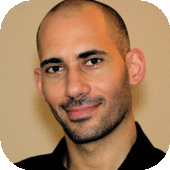
Ziad Abu-Rish is Assistant Professor of History at Ohio University, where he also directs the Middle East and North Africa Studies Certificate Program. His research explores state formation, economic development, and popular mobilizations in the Middle East, with a particular focus on Lebanon and Jordan. He is co-editor of The Dawn of the Arab Uprisings: End of An Older Order? (2012) and Critical Voices: Interviews From and On the Middle East (2014). Abu-Rish serves on the editorial teams of both the Arab Studies Journal and Jadaliyya e-zine.
Samer Abboud

Samer Abboud is an Associate Professor of Global Interdisciplinary Studies at Villanova University. He has published extensively on contemporary Syria, including a widely read book on the conflict titled Syria (Polity, 2018).
Max Ajl

Max Ajl is a PhD candidate at Cornell University’s College of Agriculture and Life Sciences. Max has a background in rural-focused research with an emphasis on agrarian issues in Latin America (Brazil and Venezuela). His research interests are in agrarian political economy, developmental planning, and political ecology.
Max's current research focuses on the Tunisian experience of decolonization and post-colonial development planning, as well as southern theories of development as they played out in Tunisia and North Africa.
Max's current research focuses on the Tunisian experience of decolonization and post-colonial development planning, as well as southern theories of development as they played out in Tunisia and North Africa.
Bassam Haddad

Bassam Haddad is Director of the Middle East and Islamic Studies Program and Associate Professor at the Schar School for Policy and Government and a core faculty member in the Philosophy, Politics, and Economics program at George Mason University. He is the author of Business Networks in Syria: The Political Economy of Authoritarian Resilience (Stanford University Press, 2011) and Co-Editor of Dawn of the Arab Uprisings: End of an Old Order? (Pluto Press, 2012). Bassam serves as Founding Editor of the Arab Studies Journal, a peer-reviewed research publication, and is co-producer/director of the award-winning documentary film, About Baghdad, and director of a critically acclaimed film series on Arabs and Terrorism, based on extensive field research/interviews. Bassam is Co-Founder/Editor of Jadaliyya Ezine and the Executive Director of the Arab Studies Institute, an umbrella for five organizations dealing with knowledge production on the Middle East. He serves on the Board of the Arab Council for the Social Sciences and is Executive Producer of Status Audio Magazine.
Omar S. Dahi
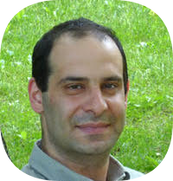
Omar S. Dahi is an associate professor of economics at Hampshire College and co-director of the Peacebuilding and Statebuilding program and research associate at PERI, University of Massachusetts Amherst. His research interests are in the political economy of development in the Middle East, South-South relations, comparative regionalism, peace and conflict studies, and critical security studies. He has published in academic outlets such as the Journal of Development Economics, Applied Economics, Southern Economic Journal, Political Geography, Middle East Report, Forced Migration Review, and Critical Studies on Security. His last book South-South Trade and Finance in the 21st Century: Rise of the South or a Second Great Divergence (co-authored with Firat Demir) explores the ambiguous developmental impact of the new economic linkages among countries of the global South. Dahi is the co-founder and director of Security in Context, an initiative advancing critical research and policy analysis on peace, conflict, and international affairs.
Muriam Haleh Davis
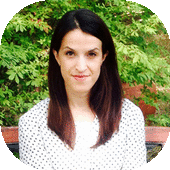
Muriam Haleh Davis is an assistant professor of history at the University of California, Santa Cruz. Her research interests focus on questions of political economy, racial classification, and postcolonial studies in Algeria. She is the coeditor, with Thomas Serres, of North Africa and the Making of Europe: Governance, Institutions and Culture (Bloomsbury Academic, 2018).
Adam Hanieh

Adam Hanieh is Professor of Political Economy and Global Development at the Institute for Arab and Islamic Studies, University of Exeter, and Distinguished Research Fellow at the Institute of International and Area Studies (IIAS) at Tsinghua University, Beijing, China. His current research focuses on issues of political economy, oil, and capitalism in the Middle East. His most recent book is Money, Markets, and Monarchies: The Gulf Cooperation Council and the Political Economy of the Contemporary Middle East (Cambridge University Press, 2018), which won the 2019 British International Studies Association, International Political Economy Group Book Prize.
Shana Marshall

Shana Marshall is Associate Director of the Institute for Middle East Studies and Assistant Research Professor. Her dissertation, “The New Politics of Patronage: The Arms Trade and Clientelism in the Arab World” examined how Middle East governments use arms sales agreements to channel financial resources and economic privileges to pro-regime elites. Prior to GW, Dr. Marshall was a fellow at The Crown Center for Middle East Studies at Brandeis University and the Niehaus Center for Globalization and Governance at Princeton University. Her current research focuses on patterns of military entrepreneurship in Egypt, Jordan, and the UAE.
Kareem Rabie

Kareem Rabie is an Assistant Professor of Anthropology at American University in Washington, DC. He is completing his first book manuscript, "Palestine is Throwing a Party and the Whole World is Invited: Private Development and State Building in the Contemporary West Bank," in press with Duke University. Before joining the faculty at AU, Kareem was Harper-Schmidt Fellow and Collegiate Assistant Professor in the Social Sciences, as well as Lecturer in the Department of Anthropology at the University of Chicago. In 2014-15 Kareem was based at the University of Oxford where he was a senior Researcher and Marie Curie Fellow at the Centre on Migration, Policy, and Society; and Research Associate at the Oxford Programme on the Future of Cities. While at Oxford, he began research on the new economic geographies of Palestine/China trade.
Sherene Seikaly
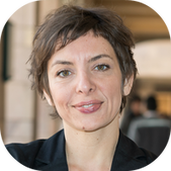
Sherene Seikaly is Associate Professor of History at the University of California, Santa Barbara. Previously she was Assistant Professor of History and Director of the Middle East Studies Center at the American University in Cairo. She is the editor of the Arab Studies Journal, and co-founder and editor of Jadaliyya e-zine. Seikaly's Men of Capital: Scarcity and Economy in Mandate Palestine (Stanford University Press, 2016) explores how Palestinian capitalists and British colonial officials used economy to shape territory, nationalism, the home, and the body.
I am a historian of capitalism, consumption, and development in the modern Middle East. The most enduring concern of my scholarly research has been to explore how individuals, groups, and governments deploy both concepts and material practices to shape economy, the body, the self, and the other. My research on Palestinian businessmen; reformers of the domestic sphere; thinkers and scientists; and British colonial officers and institutions contributes to social, cultural, and intellectual history, political economy, cultural studies, and gender studies.
I am a historian of capitalism, consumption, and development in the modern Middle East. The most enduring concern of my scholarly research has been to explore how individuals, groups, and governments deploy both concepts and material practices to shape economy, the body, the self, and the other. My research on Palestinian businessmen; reformers of the domestic sphere; thinkers and scientists; and British colonial officers and institutions contributes to social, cultural, and intellectual history, political economy, cultural studies, and gender studies.
Rafeef Ziadeh
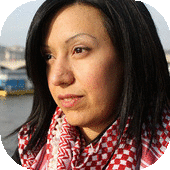
Rafeef Ziadah is Lecturer in Comparative Politics of the Middle East. Her research interests are broadly concerned with the political economy of war and humanitarianism, racism and the security state, with a particular focus on the Middle East. Rafeef’s research has appeared in the International Journal of Urban and Regional Research, Environment and Planning D: Society and Space and Race and Class, among other venues. She is currently examining the impact of Gulf Cooperation Council military and commercial interventions following the 2011 Arab uprisings.


